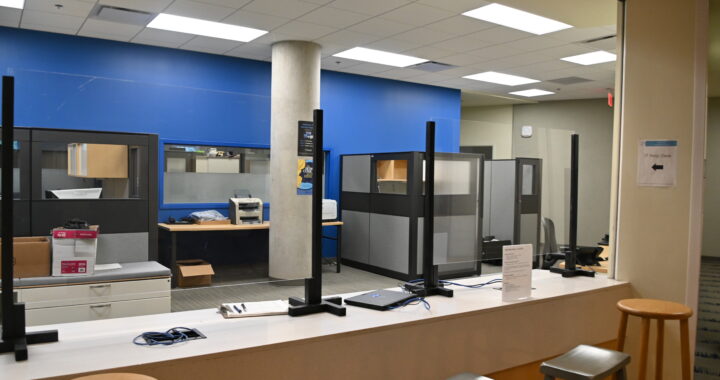Club Lobbies for Uganda
3 min readBy JOHN MALTEMPO
The University of Mary Washington chapter of the Invisible Children Organization traveled to Capitol Hill Feb. 24 to lobby for support for peace in Northern Uganda.
Invisible Children is a non-profit organization based in California. It was started in 2003 when three college film majors traveled to Northern Uganda and made a documentary about the civil war that has been raging there for 22 years.
The Invisible Children chapter at UMW was started in spring 2007 by a group of students who saw the film created by those college students.
The video can be viewed on YouTube, and a longer version of the film will be released in May .
Chapters of The Invisible Children at colleges and high schools nationwide, including the UMW chapter, take part in raising funds for Lacor secondary cluster in Uganda.
The primary focus of the organization is to make the schools a safe environment for students and teachers and to build a solid institutional infrastructure.
Once that is completed the money will go directly to bringing children into the school and helping them remain there.
The war in Uganda is between the Northern tribe and the Southern tribe.
Though the civil war has been labeled as only being 22 years long, it began when Uganda was created after European colonists left Africa.
At that point, the two different tribes were forced together in one country and originally placed under the rule of a southern tribesman.
Briefly, the Northern tribe overthrew the government, but the Southern forces regained control and have remained in power since.
Julie Robert, president of the UMW Invisible Children chapter, emphasized the complexity of the conflict.
“What I want to stress is that this war is not just black and white,” Robert said.
The conflict between Northern Uganda’s Lord’s Resistance Army and the Ugandan government has become known for its brutality.
The LRA has been abducting children to train as tools of war, while the Ugandan government has forced families from their homes and into containment camps to help protect them from the LRA’s abductions.
However, the conditions of these camps cause an average of 143 deaths a day in each camp.
On Feb. 24, the Ugandan government and the LRA signed a peace agreement that negotiators hope will calm the conflicted country.
Uganda Lobby Days, the lobbying event that began the same day as the signing of the peace agreement, was arranged by the Resolve Uganda Campaign to communicate with important officials on Capitol Hill.
The event began with the screening of “War Dance,” a new documentary on the war in Northern Uganda.
“[War Dance] offers a slightly different perspective about the impact the war has on the children of Northern Uganda,” said Katherine Knopf, a member of UMW’s chapter of Invisible Children.
The following day was spent in conferences where panels discussed the situation on the ground, the history of the war and the United States’ role in the Great Lakes region of Africa.
Students lobbied senators and representatives from their home states on Feb. 26 with three requests.
Firstly, they asked the Department of State to become more involved in the conflict, since the Ugandan government would respect the opinion of the United States.
The second request was that the United Nations exert their authority as a global governing body.
The U.N. has largely ignored the war in Uganda thus far.
The final request was that the United States donate 25 million dollars through the United States Agency for International Development to the Ugandan Government to help rebuild the country’s infrastructure after the war.
USAID is a government organization that advances federal policy objectives by providing aid to foreign countries.
The UMW chapter of Invisible Children is planning an event March 24 at the wall in front of Lee Hall to demonstrate the magnitude of the situation in Uganda, according to club president Roberts.
“We understand the power a group of people can have,” she said. “As much as the government might be messed up, some things work.”


